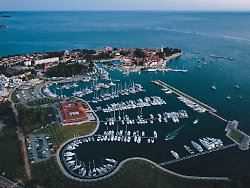Global financial assets have increased over the past year. And according to Allianz, the trend should have continued this year. The reason is the policy of the central banks, which is pushing the stock markets. But the experts warn against the sweet poison.
According to a study, global financial assets rose more sharply than in years before the Corona crisis due to higher share prices. "In view of the fact that 2019 was marked by social unrest, escalating trade conflicts and an industrial recession, this achievement is more than astonishing," writes Allianz in its Global Wealth Report. In Germany, too, assets rose at a record pace – but so did liabilities. The year "was a record year for which savers can thank the central banks," said Allianz chief economist Ludovic Subran.
As Allianz announced in its Global Wealth Report, the gross financial assets of German households rose by 7.2 percent last year. This was the strongest increase since the turn of the century, but it was below the Western European average of 7.6 percent. Worldwide, gross financial assets even increased by 9.7 percent. The flooding of the financial markets with cheap money by the central banks alone resulted in an increase in the equity markets of 25 percent.
This story could repeat itself in 2020. Because of the Corona recession, central banks and tax authorities around the world launched unprecedented monetary and fiscal aid packages, shielding households and their financial assets from the consequences of a world in disarray, according to Allianz. It is therefore very likely that the financial assets of private households will end in positive territory in the pandemic year 2020.
"At the moment, monetary policy has virtually immunized assets against Corona," said Allianz chief economist Ludovic Subran. "But we shouldn't kid ourselves. Zero and negative interest rates are a sweet poison. They undermine wealth accumulation and exacerbate social inequality, as wealthy owners can reap heavy profits." That is not sustainable.
Germans discover the stock market
In its survey, the alliance also identified a change in the savings behavior of Germans. "Bank deposits remain by far the most popular savings product, but German households are beginning to turn to riskier investments such as listed stocks and investment funds," the report said. While the other Europeans have consistently reduced their market risk by selling securities since the financial crisis, German savers have increased their investments in this regard and invested around 20 percent of their fresh savings in securities over the past three years.
"A look at the division between domestic and foreign listed shares is even more revealing: 54 percent of the share purchases by German savers since 2013 have been foreign shares. Their share of total share ownership has thus increased from 25 percent at the end of 2013 to 38 percent last year" the alliance does the math.
In Germany, however, liabilities rose parallel to assets and reached a record. Over the year, they increased by 4.6 percent. According to the study, with net financial assets per capita of 57,100 euros, Germany remained in 18th place in the ranking of the 20 richest countries. Allianz expects growth in 2020 to be significantly lower. In first place is the USA with per capita assets of the equivalent of almost 210,000 euros, followed by Switzerland with a good 195,000 euros and Singapore with just under 117,000 euros.
.
